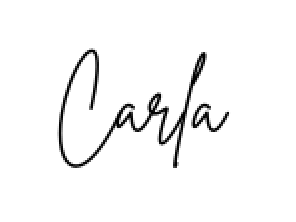What is Vitamin D?
Vitamin D is an antioxidant, a type of molecule that plays an important role in a wide variety of your body’s functions. Vitamins D prompts your liver to produce 25-hydroxyvitamin D, which is essential for maintaining your immune system’s health, keeping your bones strong, and regulating your mood.
What Happens If You Have A Vitamin D Deficiency?
When your body isn’t producing enough Vitamin D, you can experience a number of health issues.
Signs of a vitamin D deficiency include:
Fatigue and exhaustion. A lack of vitamin D can have an impact on your energy levels. Less exposure to sunlight can mean lower vitamin D3 levels in the winter, which can lead to feeling constantly rundown and tired. This is why many people experience seasonal fatigue and exhaustion in the wintertime. Supplementing with vitamin D3 can help keep this unpleasant side effect from setting in.
Mood problems. In addition to fatigue, there is sufficient research to show that not having enough of the vitamin can lead to depression-like symptoms. People with depression have higher chances of having vitamin D deficiency. Seasonal affective disorder – ironically often abbreviated as SAD – can stem from insufficient vitamin D levels in the winter when you’re getting less sunlight. The sun’s rays and the vitamin D3 they help your body produce can play a crucial role in maintaining your emotional health. Taking a vitamin D3 supplement can be a huge help, too.
Reduced immune function. If your body isn’t producing enough 25-hydroxyvitamin D, it can also impact your immune system. Since vitamin D plays a major role in keeping your immune system functioning well, a deficiency can cause you to be more vulnerable to getting sick.
Weaker bones. In addition to calcium, vitamin C, and other essential vitamins and minerals, vitamin D is vital for bone health. This symptom of a vitamin D deficiency may be harder to notice than other symptoms at first, but it can have a lasting negative effect on your body if it is left unaddressed.
To potentially avoid these issues, make sure to get enough vitamin D from supplements and sunlight! A high-quality vitamin D3 supplement can support your 25- hydroxyvitamin D levels, especially in the lower-sunlight months of the year.
How Much Vitamin D Do I Need?
The recommended daily amount of vitamin D is 16 mcg (600 IU) for women and men over the age of 19, and 20 mcg (800 IU) for adults aged 70 and older.
When it comes to supplementing with vitamin D, stick with the recommended dose. If you take in large amounts of vitamin D you may start to see some harmful side effects, such as calcium buildup, nausea, vomiting and weakness
Although it is possible to get too much vitamin D, it’s much more important to find effective ways to get enough of this essential nutrient in your diet.
Below are 3 tips for getting enough vitamin D each day!
1. Spend Time in the Sun!
Soaking up some sun rays each day helps your liver produce plenty of Vitamin D. Sun exposure prompts your body to produce vitamin D3, which your liver can convert into Vitamin D. Getting time in the sun every day can help to improve your mood, especially in the colder, darker months of winter. Thanks to the mood-boosting power of vitamin D, you may start feeling much better if you get some sun when the winter blahs are hitting!
2. Add Vitamin D Rich Food To Your Diet
The best natural sources of Vitamin D are fatty fish, like trout, salmon, tuna, and mackerel. Cooked pink salmon has 647 IU of vitamin D per half fillet, according to the USDA. Herb Rubbed Salmon With Roasted Asparagus is a delicious way to increase your daily dose of Vitamin D! In addition to vitamin D, fatty fish is also a good source of healthy protein and omega-3 fatty acids.
Some animal products, like cheese, egg yolks, and fatty meats, also have small amounts of vitamin D.
Another excellent source of dietary vitamin D might surprise you – it’s mushrooms! Many mushrooms contain vitamin D2, and they’re right at home in many plant-based meals. You can find creative ways to include mushrooms in your diet, either cooked or raw.
When you combine food sources of vitamin D with a high-quality supplement, you’ll support your body’s needs for this vital nutrient each day.
Some plant-based foods, including many dairy-free milk alternatives and cereals, are fortified with vitamin D. You can boost your vitamin D intake by adding these foods to your weekly diet!
Keep in mind that some foods are fortified with a non-vegan form of vitamin D, and many of these may be loaded with added sugar. Try to avoid cereals, milk alternatives, and other fortified foods that are excessively sweetened. Look for fortified foods that contain little to no added sugar, and make these foods some of your go-to sources of dietary vitamin D!
3. Take A High-Quality Supplement
If you eat a plant-based diet, it can be tough to get enough vitamin D3. That’s where supplements come in handy! Arbonne’s new Vitamin D3 & K2 liquid spray contains 100% of the recommend daily amount, and the D3 we use comes from a vegan source. You can learn more about it here!


View comments
+ Leave a comment